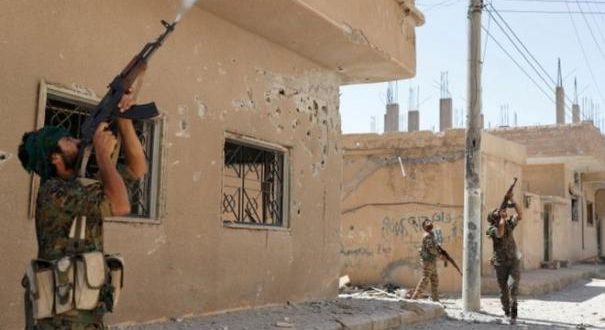Shehab Al Makahleh
Jordanian authorities believe that the threats of Jordanians who are pro-Daesh and Al-Nusrah posed on the kingdom’s security and stability is an utmost priority. This is the major challenge for the security services and the community as the number of Jordanians fighting with both terrorist groups in Syria is estimated at 1300 people, 400 of them were killed, 300 of them returned to Jordan and 600 are still fighting with both factions in Syria.
The issue that Jordan is facing is that there is a tangible percentage of sympathy towards these terrorist groups amongst Jordanians. According to a poll published in September 2014 by the Center for Strategic Studies at University of Jordan, 62 percent of Jordanians consider Daesh as a terrorist faction. Only 31 percent of the respondents believe that al-Qaeda affiliate and Al- Nusra as well as other terrorist groups which are based in Syria considers the group a terrorist organization. Stunningly, 44 percent of the respondents believe that al-Qaeda is a terrorist group. When asked about the most threatening factions to Jordan’s security and stability, 65 percent of the respondents said Daesh was the most threatening to Jordan’s stability. Despite this low rate, the gravity of terrorism remains a nightmare for the security services, the state and society.
The Jordanian model in the fight against terrorism is very delicate. Jordanian Intelligence Department (GID) is known for using human intelligence sources largely in the intelligence follow-up process. The Jordanian approach to fighting violent extremism and terrorism adopted by the GID is based on a preventive approach in general.
However, it should be pointed out that so far the focus is on individuals and not on organized community effort to combat terrorism, violent extremism and hate speech. It stems from tracking and monitoring individuals who are extremists in the society and work calmly and patiently through various means to contain and weaken them without crossing red lines.
Observers of the phenomenon of violent extremism and terrorism are aware that this approach is still prevailing in Jordan and has not changed much though Jordan adopts a highly focused methodology targeting those involved in terrorist acts or violent extremism.
The hotel bombings in Amman in late 2005 carried out by the Al-Zarqawi group led to revisions in the security strategy adopted to counter al-Qaeda and the Islamic organizations as well as affiliates in a bid to pursue al-Qaeda and its members before reaching Jordan. Jordan is now focusing on how to deal with Jordanian jihadist fighters in Iraq and Syria in particular and how to deal with them, especially the defeat of those terrorist groups in Iraq and Syria.
In 2015, some analysts estimated the number of Jordanians supporting Daesh and other jihadist groups at 9000 to 10,000 supporters. Since 2014, 675 persons were referred to the court for being members of such terrorist factions or of promoting terrorist organizations, mainly Daesh. Many Jordanian jihadists participated in Syria and Iraq for various reasons, including ideological reasons, economic reasons, disagreements with the government, feelings of inequality, proximity to Syrian borders and terrorist organizations, loyalty to Sunni groups against Shiite groups in Syria and Iraq, and secular government policies.
In short, there is no coherent theory that can explain why Jordanians join terrorist groups outside or inside Jordan. Given the presence of these fighters and the possibility of their return, the state will suffer greatly if they return, although there are no reliable statistics on the number of returnees because some may return illegally – smuggling through the border between Jordan, Syria and Iraq.
The security and political challenge that Jordan will face in the next decade is the problem of extremist Takfiri groups released from prisons who are under the influence of the most dangerous Jihadist and Salafi leader in the world who are now in Jordan, Abu Muhammad al-Maqdisi and Abu Qatada, who continue to deny the state, order, democracy and the civil state, and incite fighting and jihad. Both leaders have not made any positive review of their old extremist religious ideas that contributed to the spread of violent extremism and terrorism and globalization around the world.
During the Salafist Jihadist approach, Jordan presented the most important and most dangerous Salafist leaders in the world, from Abdullah Azzam to Abu Musab al-Zarqawi, both Palestinians with Jordanian nationality, who were killed outside Jordan, leading the banner of violent religious extremism and terrorism in the world in the name of Islam, Jihad and the establishment of the Islamic caliphate. The dispute and division between Daesh and al-Nusrah on May 11, 2014 led to the division of Salafist jihadist movement in Jordan, which has a number of supporters in Jordan.
 Geostrategic Media Political Commentary, Analysis, Security, Defense
Geostrategic Media Political Commentary, Analysis, Security, Defense





